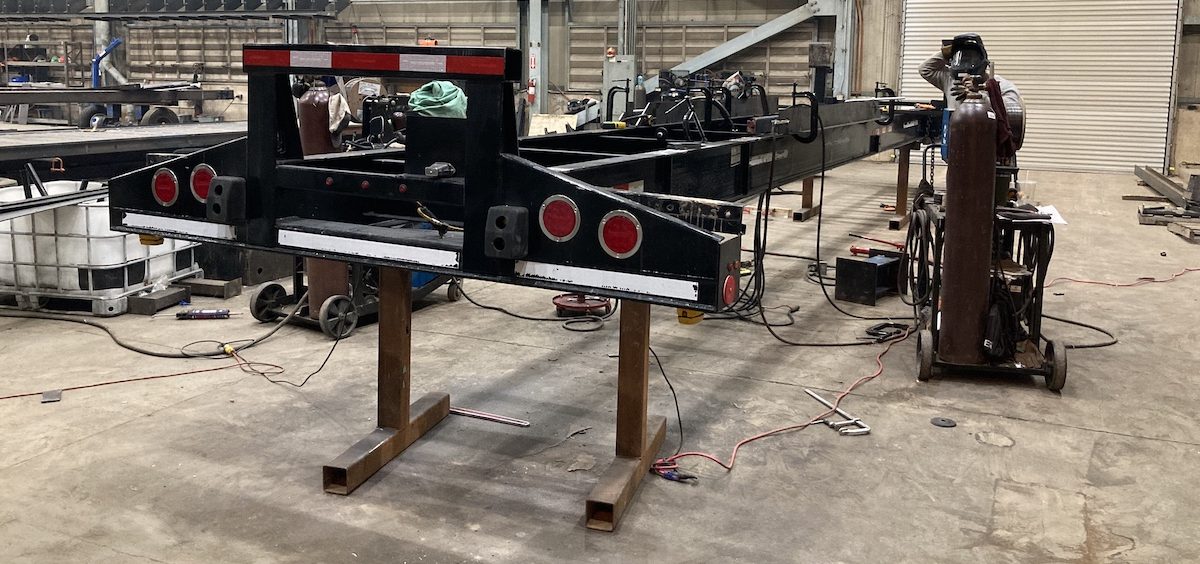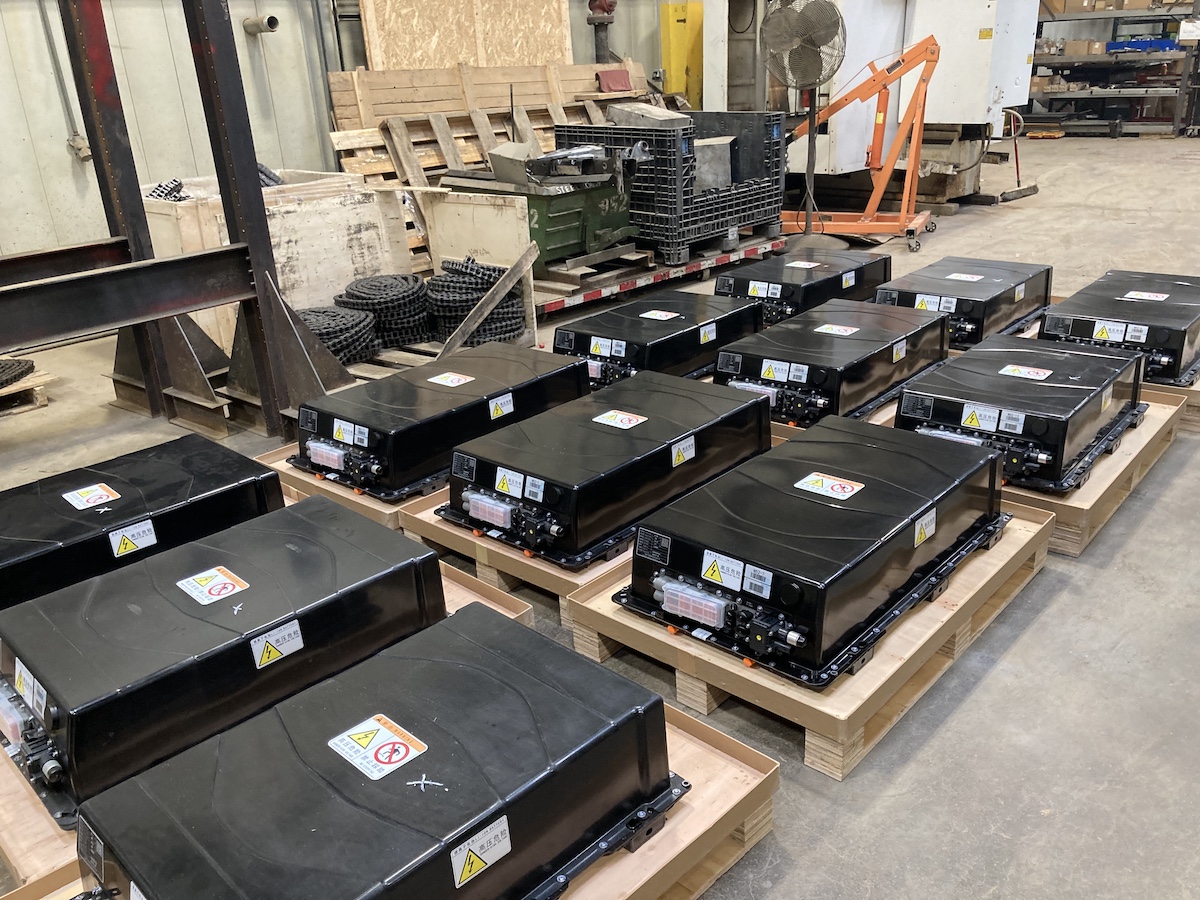
Local company QuickLoadz offers a different solution for electrifying trucking
By: Gabriel Scotto
Posted on:
ATHENS, Ohio (WOUB) – A local manufacturer is taking a different approach to building electric semi-trucks: Instead of electrifying the truck itself, it is electrifying the trailer.
QuickLoadz, a manufacturer of automated container trailers, will be the first company to offer a container chassis fitted with an electric axle. These chassis work with both electric and diesel-powered semi-trucks, which the company says helps improve fuel efficiency and range.
QuickLoadz founder Sean Jones, who graduated from Ohio University with a degree in electrical engineering, said the company’s product makes electric semi-trucks competitive with diesel-powered semis.
Jones said currently, most electric semi-trucks have an average range of approximately 250-300 miles. But the electric container chassis can increase that to around 600 miles.
QuickLoadz is building the first prototype of its new chassis at its factory in Athens and will construct four additional chassis to be on display at industry trade shows across the country.
The company is also in talks with major trailer manufacturers including Wabash National and Hyundai to license this technology so they can offer it to their customers. QuickLoadz also wants to sell conversion kits for trailers and diesel-powered semis to transform them into plug-in hybrids.

“Our system has all the sensors and everything built into the axle, so you (can) literally yank the rear axle, put in an e-axle and drop on a battery pack,” Jones said.
Diesel-powered trucks pulling container chassis fitted with QuickLoadz’s electric axle can see increases in fuel efficiency of up to 31 percent. And Jones said the fuel savings will pay for the cost of conversion within seven years.
There are numerous benefits to replacing diesel-powered semis with electric ones. In addition to reducing greenhouse gas emissions, electric semi-trucks also eliminate the risks posed by diesel exhaust.
Diesel exhaust contains smog and cancer-causing compounds such as soot and nitrogen oxides. Prolonged exposure to diesel exhaust has been linked to both lung and bladder cancer.
In addition to being better for the environment, electric trucks also require less maintenance than diesel-powered semis.
“Electric vehicles are a lot more mechanically straightforward,” Bresette said. “There’s no internal combustion engine that has hundreds of moving parts.”
Despite this, electric semis only make up around 1 percent of new truck production. Part of the reason for this is the high upfront costs of electrification, coupled with a lack of sufficient charging infrastructure.
Electric semis have large batteries capable of storing up to 900 kilowatts, which require fast charges capable of putting out 1,000 volts compared to the 300-400 volts required to charge an electric car.
The electric axles QuickLoadz uses are fitted with batteries capable of storing up to 471 kilowatts, around half the energy required by a typical electric semi-truck.
Mike Roeth, executive director of the North American Council for Freight Efficiency, said it will take time for battery technology and charging infrastructure to develop to where electric semis are competitive with their diesel-powered counterparts but remains optimistic about the future of electric semis, especially considering the technological limitations of diesel-powered trucks.
Roeth says QuickLoadz’s product represents a promising opportunity for electrifying semi-trucks.
“We’ve been improving diesel trucks for 100 years and we’re getting to the point where we’re trying to get blood from a turnip,” Roeth said. “But with electric trucks, we’re going to see significant improvements. … It’s a matter of speed and cost, but it’s going to happen.”

